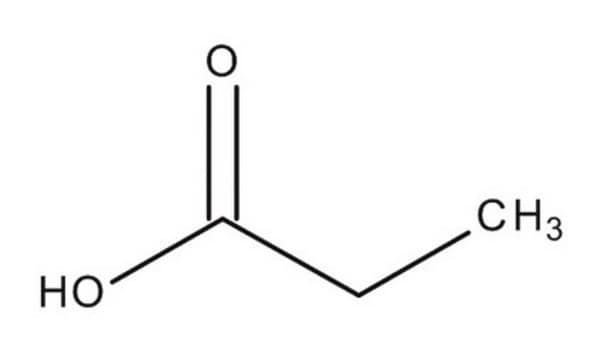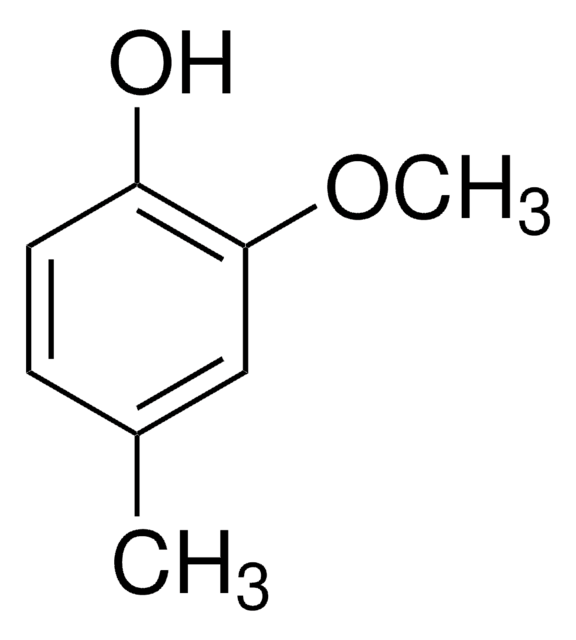W292419
Propionic acid
natural, 99%, FG
Synonym(s):
Acid C3, Propanoic acid, Propanyl acid
About This Item
Fragrance grade
Halal
Kosher
natural
Recommended Products
grade
FG
Fragrance grade
Halal
Kosher
natural
Quality Level
agency
follows IFRA guidelines
reg. compliance
EU Regulation 1223/2009
EU Regulation 1334/2008 & 178/2002
FDA 21 CFR 178.1010
vapor density
2.55 (vs air)
vapor pressure
2.4 mmHg ( 20 °C)
assay
99%
autoignition temp.
955 °F
expl. lim.
12.1 %
greener alternative product characteristics
Less Hazardous Chemical Syntheses
Use of Renewable Feedstocks
Learn more about the Principles of Green Chemistry.
sustainability
Greener Alternative Product
refractive index
n20/D 1.386 (lit.)
bp
141 °C (lit.)
mp
−24-−23 °C (lit.)
solubility
H2O: soluble
soluble
density
0.993 g/mL at 25 °C (lit.)
application(s)
flavors and fragrances
documentation
see Safety & Documentation for available documents
food allergen
no known allergens
fragrance allergen
no known allergens
greener alternative category
organoleptic
dairy; acidic; pungent
SMILES string
CCC(O)=O
InChI
1S/C3H6O2/c1-2-3(4)5/h2H2,1H3,(H,4,5)
InChI key
XBDQKXXYIPTUBI-UHFFFAOYSA-N
Looking for similar products? Visit Product Comparison Guide
General description
signalword
Danger
hcodes
Hazard Classifications
Eye Dam. 1 - Flam. Liq. 3 - Skin Corr. 1B - STOT SE 3
target_organs
Respiratory system
Storage Class
3 - Flammable liquids
wgk_germany
WGK 1
flash_point_f
129.2 °F - closed cup
flash_point_c
54 °C - closed cup
ppe
Faceshields, Gloves, Goggles, type ABEK (EN14387) respirator filter
Choose from one of the most recent versions:
Already Own This Product?
Find documentation for the products that you have recently purchased in the Document Library.
Customers Also Viewed
Our team of scientists has experience in all areas of research including Life Science, Material Science, Chemical Synthesis, Chromatography, Analytical and many others.
Contact Technical Service
















